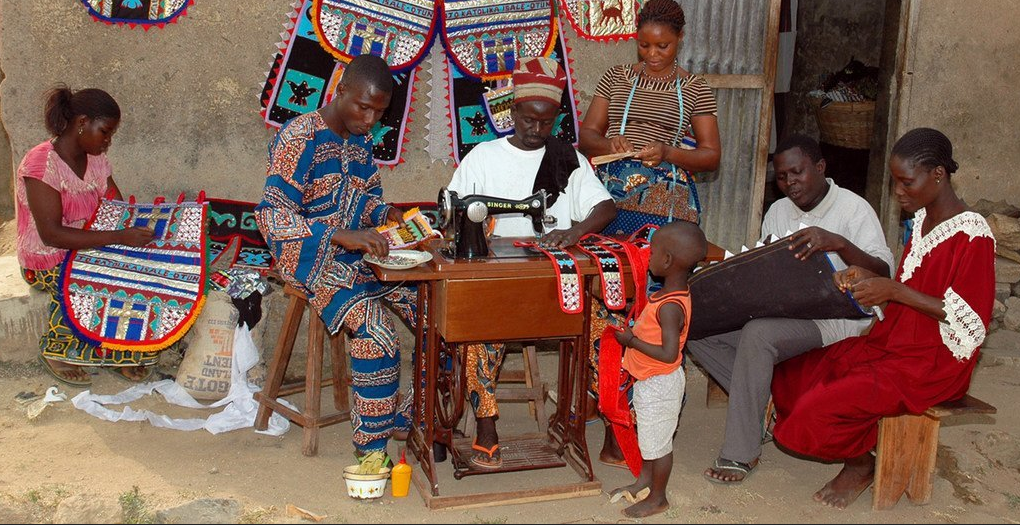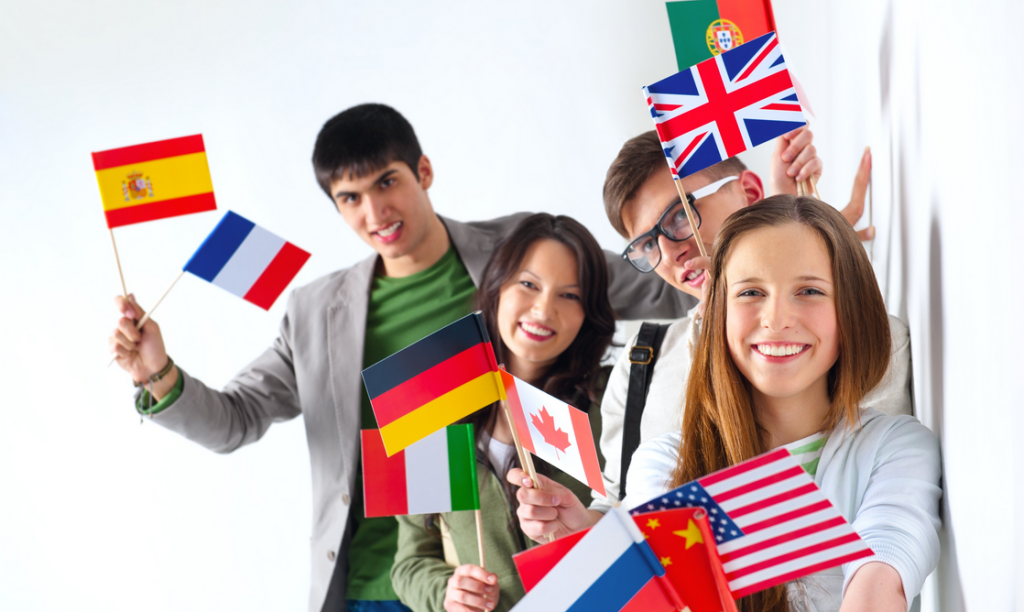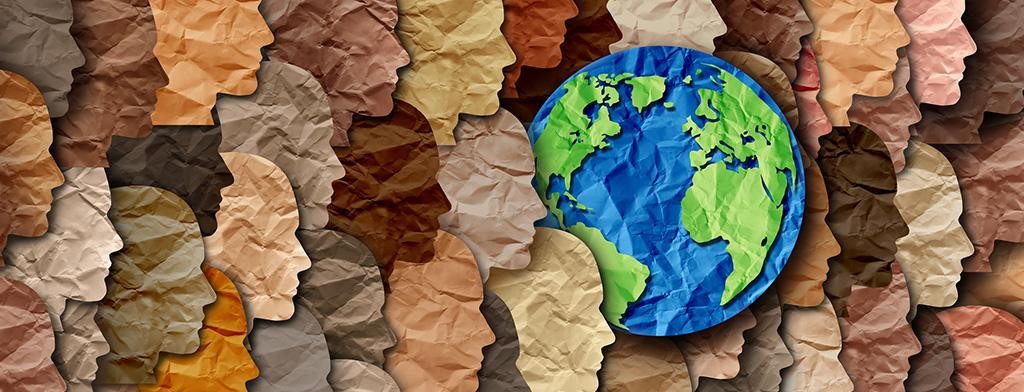The world’s population comprises communities from different cultures. Each culture possesses unique distinguishing traits, including elements like history, language, arts, religion, and social customs, all actively shaping distinct worldviews and traditions. These cultural differences are often celebrated within communities, creating a strong sense of identity and belonging. When viewed collectively, they reveal the incredible richness of human diversity.
Cultural heritage encompasses the customs, traditions, monuments, languages, artworks, and practices that define the identity of a community. Hence, the appreciation and preservation of such heritage plays a vital role in promoting mutual understanding, respect, and harmony among diverse populations. Therefore, in a culturally diversified society, there is a growing need to acknowledge people from different cultural backgrounds and create an enabling environment that recognizes and values the social behaviors of others.
What is cultural diversity?
Simply put, cultural diversity refers to the existence of a variety of groups within a society. This diversity includes differences in ethnicity, language, religion, customs, values, and artistic traditions that shape each culture’s unique identity. Cultural diversity serves as an ideological belief maintained in societies that acknowledge, appreciate, and respect the cultural behaviors and presence of other people or people from diversified groups. Essentially, cultural diversity is the act of inclusiveness across different cultural backgrounds, as well as the creation of an enabling environment that acknowledges and appreciates the social behaviors of others.
A culturally diverse society enables and empowers diverse contributions that different people make from various ethnic backgrounds. Therefore, by promoting peaceful coexistence among different people in modern society, cultural diversity is foundational to social cohesion, economic development, and intellectual progress.
Importance of cultural diversity
When people from diverse cultural backgrounds interact and collaborate, they promote mutual respect and understanding, which helps to reduce prejudice and discrimination. This inclusiveness enhances creativity and innovation, as diverse viewpoints help contribute to new ideas and solutions. Furthermore, cultural diversity helps to preserve the richness of human history and knowledge, ensuring that traditions, languages, and customs are passed down to future generations. Therefore, recognizing and valuing cultural diversity is crucial to building a world where all people feel valued, respected, and empowered to contribute their unique perspectives.
How cultural diversity contributes to global harmony
-
Cultural diversity enriches people’s lives
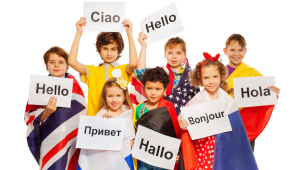
Cultural diversity helps develop and enrich our lives in ways we cannot imagine. By being exposed to diverse cultures, beliefs, and traditions, we begin to appreciate different perspectives, ways of living, and experiences that we were initially unaware of. As a result, we get a unique opportunity to learn from one another and broaden our horizons. Actively interacting with individuals from different cultural backgrounds helps us gain insight into different values, beliefs, and daily practices, which can help us learn and become more tolerant and open-minded in our own country. Such interactions help us broaden our perspectives and make us more empathetic and compassionate to one another despite our differences.
-
Cultural diversity reduces discrimination and prejudice

Cultural diversity promotes intercultural dialogue and understanding within a community, thus minimizing discrimination and prejudice. When individuals from diverse backgrounds meet and share knowledge, experiences, and perspectives, they actively challenge stereotypes and acknowledge the commonalities that exist among different groups. Such interactions also help break down barriers and eliminate negative perceptions about different cultures, ultimately promoting greater respect and appreciation for other people’s cultures. Hence, cultural diversity helps people from different cultural backgrounds to work towards overcoming their differences and create a more inclusive and harmonious society that values and embraces differences as opposed to fearing or rejecting them.
-
Cultural diversity promotes innovation and economic growth

Interestingly, cultural diversity plays a crucial role in promoting innovation and driving economic growth. When people from different cultural backgrounds collaborate, they bring varied perspectives, unique experiences, and alternative problem-solving approaches to the table. This diversity in thought is key to sparking creativity by challenging conventional thinking and inspiring fresh ideas.
For instance, businesses stand to benefit significantly from embracing diverse teams as they are more capable of understanding and meeting the needs of a global market. Studies also confirm that businesses with culturally diverse teams often outperform their less diverse counterparts in both innovation and profitability.
Hence, businesses gain access to a broader range of insights and skills, as well as more robust decision-making and a competitive edge by embracing diversity in the workplace. In this way, cultural diversity promotes innovation and economic growth by providing a way for people to understand that innovation is closely linked with being open to new ideas and new ways of thinking.
-
Cultural diversity resolves conflicts and promotes peace.
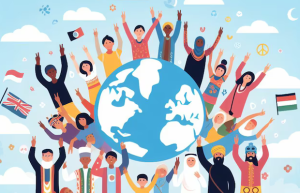
Cultural diversity plays an essential role in peacebuilding by fostering environments of mutual respect and cooperation. Multicultural societies that comprise people from different ethnic, religious, and cultural backgrounds offer valuable insights into how diversity can be leveraged to resolve conflicts and promote peace. Such societies emphasize how acknowledging and valuing differences can help bridge divides and enable communities to address and mitigate sources of tension. When individuals from diverse backgrounds come together with a shared goal, they often discover common values that transcend their differences, resulting in stronger, more resilient communities.
Similarly, multicultural societies also highlight the importance of inclusive policies and dialogue-driven approaches in peacebuilding efforts. In such societies, governments and institutions help lay the foundation for social harmony and justice by promoting inclusive laws, education, and social programs that respect all cultural identities. Such measures build trust within communities, reduce social polarization, and discourage discriminatory practices, which are often root causes of conflict. Hence, cultural diversity enriches societies and serves as a powerful tool for sustainable peacebuilding.
In a world that is becoming increasingly interconnected, embracing and celebrating cultural diversity is more important now than ever. The diverse cultures that exist across the globe hold immense value as they help preserve unique traditions and identities and also foster a sense of shared humanity. Each culture brings something unique to the table, offering perspectives and wisdom that contribute to a more vibrant and inclusive global community. By valuing diverse cultural expressions, we create a world where mutual respect and understanding are prioritized, breaking down barriers and reducing prejudice. In doing so, we embrace a future where global harmony is not only possible but achievable.
References
Brodowicz, M. (2024). Understanding the Importance of Cultural Diversity in Today’s Global Society. Aithor. https://aithor.com/essay-examples/understanding-the-importance-of-cultural-diversity-in-todays-global-society
Shehi, K. (2023). The Importance of Cultural Diversity in a Globalized World: Why World Day for Cultural Diversity Matters Now More Than Ever. MCIS Language Solutions. https://www.mcislanguages.com/mcis-blog/the-importance-of-cultural-diversity-in-a-globalized-world-why-world-day-for-cultural-diversity-matters-now-more-than-ever/
University of the People, (2020). What Is Cultural Diversity And Why Is It Important? https://www.uopeople.edu/blog/what-is-cultural-diversity/

